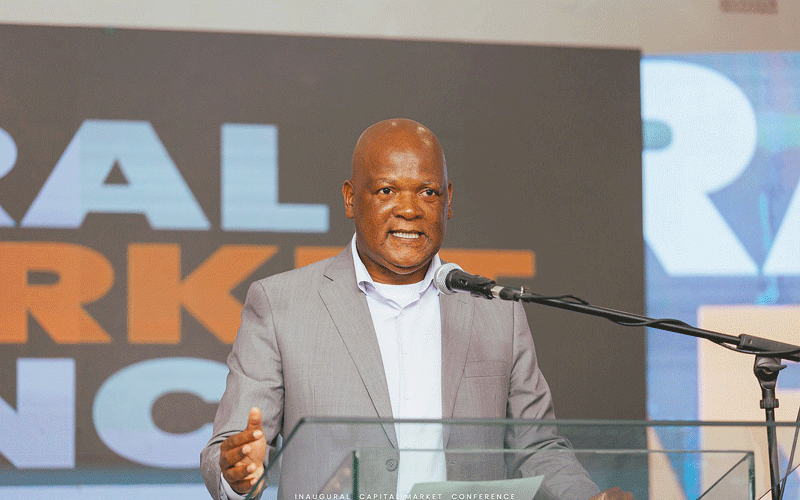
The poor state of Zimbabwe’s infrastructure and lack of skills are taking a toll on the economy as companies spend more on logistics, industry players have said.
According to Treasury as of 2021 the country needed US19.68 million investments in infrastructure for the economy to run efficiently.
Zimbabwe Institute of Transport and Logistics board chairperson Robert Mandeya told Standardbusiness that the transport and logistics sector was losing substantial revenues due to poor infrastructure.
The country’s major roads are in bad state due to neglect with the Beitbridge-Bulawayo, Bulawayo-Victoria Falls and Harare-Chirundu highways being some of the worst roads.
Years of mismanagement and lack of investment in railway infrastructure has also compounded the problem with the National Railways of Zimbabwe struggling to provide freight services to businesses.
“Most of our goods are transported by road, which is very expensive,” Mandeya said.
“With the world shifting to technology and digitalisation, the Zimbabwean transport and logistics sector is lagging behind in this regard.
“Therefore, a lack of investment on technology and digitalisation in this sector has resulted in revenue losses, damages and delays in deliveries.”
- Airports Company strikes mega hotel deal
- In Full – Zimbabwe 42nd Independence Day speech by President Mnangagwa, April 18, 2022
- Airports Company strikes mega hotel deal
- Dam construction delays jolt senators
Keep Reading
He said there was need to upgrade skills in the sector for it to catch up with modern trends and to invest heavily in infrastructure.
“There is a need to rethink the upskilling of personnel in this sector to improve on railway networks by expanding on connecting points of production and manufacturing industry,” Mandeya said.
“There is also a need to upgrade our internal dry ports in terms of handling of goods and distribution.
“Zimbabwe is a transit point for most countries in the Sadc regions. Hence, there is a need to establish state of the art dry-ports to facilitate efficient shipment of goods in the region.”
He said Zimbabwe’s logistics sector must adopt digital technologies to enhance tracking and receiving of goods as well as reduce paperwork and improve efficiency.
“In this fourth industrial revolution, where AI (artificial intelligence) and the Internet of Things are paramount, Zimbabwe needs to catch up,” Mandeya added.
“While we appreciate the government’s efforts to improve the road network, the private sector must complement these initiatives.”
He urged the government to improve infrastructure to attract new investments as well as to enforce regulations that promote fairness and safety within the industry.
Mandeya said Zimbabwe’s transport and logistics sector had the potential to grow to US$7,9 billion by 2029 if improvements were made in the country’s laws and governance, safety measures, infrastructure development, and training in technology as well as sustainability.
“The government can enforce laws to ensure fairness in transport operations whilst promoting safety of the traveling public.
“The government also can invest in road infrastructure so as to attract new players and improve on efficiency,” Mandeya said.
“There is a need by the government to improve road safety by increasing road traffic surveillance, strengthening enforcement of vehicle safety regulations, and installing and maintaining road signs.”
He added that the government could improve the rural transport network by providing feeder roads, public transport, and village service roads.
“The government can improve sustainability by implementing demand management, operations management, pricing policies, and vehicle technology improvements,” Mandeya said.
“The government can improve governance by ensuring that the transport authority is well-governed.”
Shipping Forward Agent Association chief executive officer Washington Dube acknowledged the need for infrastructure development and noted that upgrading border facilities was essential for improving logistics.
“One of the challenges facing logistics in Zimbabwe is the inadequate facilities at ports of entry,” Dube said.
“You may be aware that the government has put in place measures to improve our border posts and Beitbridge Border post is one such initiative.
“The border was upgraded to meet international standards.
“The border will go a long way in improving the smooth movement of goods in Zimbabwe.
“We have also witnessed the rapid upgrade of road infrastructure in Zimbabwe. Poor road networks hamper the smooth movement of goods.
"The current blitz of road infrastructure by the Ministry of Transport and Infrastructure Development really speaks to ease of transport and logistics.”
Dube said there were plans to upgrade borders to minimise delays, particularly on crucial routes like the Beitbridge to Harare highway, which is vital for both exports and imports linked to South African ports.
“The transports and logistics industry should be on the forefront of innovation,” he added.
“Innovations like autonomous technology will serve the industry well. Autonomous delivery by drones is one such innovation.
“Autonomous delivery vehicles can also be used to deliver goods efficiently.
“We should embrace technologies like Artificial intelligence, the internet of things, blockchain, and robotics that are transforming how goods are transported, tracked, and managed.
“These innovations are not only improving efficiency and reducing costs but also enhancing sustainability and customer satisfaction.”










